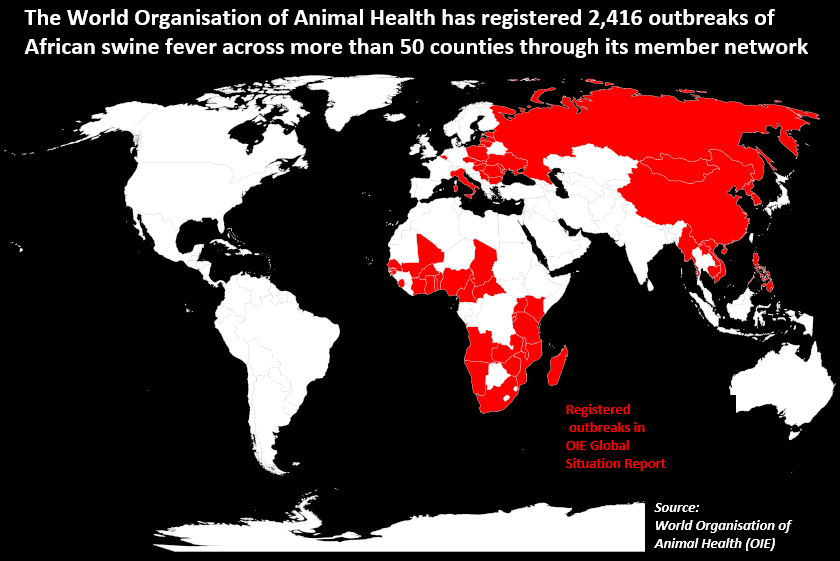The Philippine hog industry is losing nearly $20 million a month from African swine fever infections, agricultural officials said on Friday, after announcing the virus has also been detected in some processed pork products.
The highly contagious pig disease is quickly spreading in the Philippines, the world’s 10th-largest pork consumer, pushing up prices of other meat products such as chicken.
Though not harmful to humans, the disease is deadly to pigs, with no vaccine available.
President Rodrigo Duterte’s office issued a statement late on Thursday seeking a concerted government effort to manage, contain and control the disease that is also wreaking havoc on hog industries in China and other Asian countries.
In a separate media briefing, Philippine central bank officials warned of an upside risk to inflation in 2020 amid the swine fever scare.
In the Philippines, also the world’s seventh-biggest pork importer, the virus has hit some backyard farms in Quezon City in Metropolitan Manila and in several provinces on the main island of Luzon.
“There are opportunity losses for the hog industry estimated at about 1 billion pesos ($19.5 million) a month,” said Noel Reyes, spokesman for the Department of Agriculture.
The government reported the country’s first outbreak in September. More than 60,000 pigs have since either died because of the disease or been culled. That is less than 1% of the country’s herd estimated at 12.7 million pigs as of July.
Packets of processed pork items confiscated recently from a local traveler, mostly home-made but also including some “branded” products, tested positive for the virus, the agriculture department said in a statement.
The tainted products include hotdogs, sausages and cured meat, local media reported.
“We strongly appeal to small backyard hog raisers not to sell their ASF-infected pigs to traders, and for traders not to sell infected hogs, and pork and processed products so as not to spread the ASF virus to other areas,” Agriculture Secretary William Dar said.
Reported infections are all within Luzon and some provinces in central and southern Philippines have banned pork and pork-based products from the disease-hit areas.
Source: Reuters








